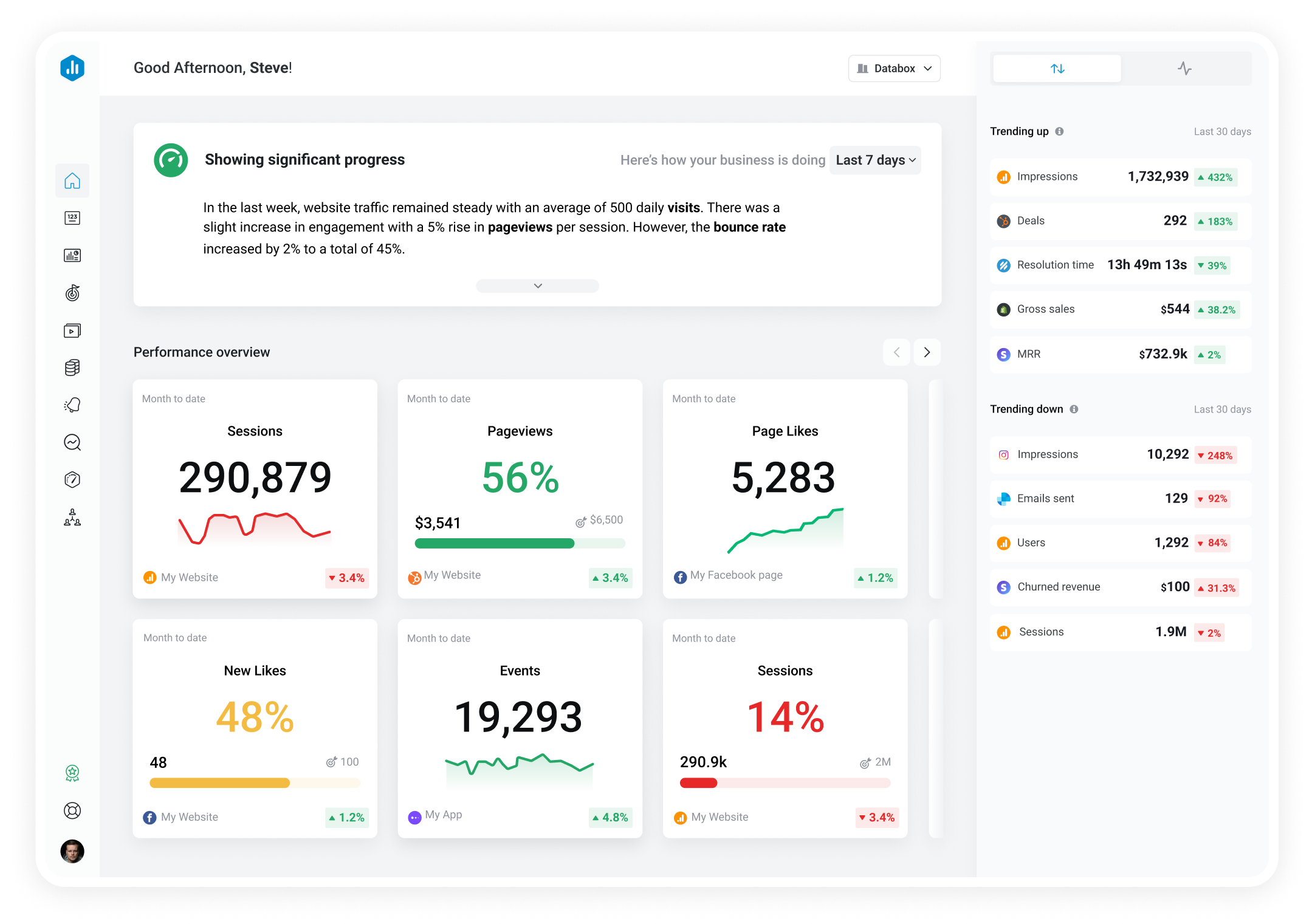Track all of your key business metrics from one screen
GET STARTED
 QuickBooks
Revenue Growth (Accrual)
QuickBooks
Revenue Growth (Accrual) Revenue Growth (Accrual) shows how much a company's cash revenue has gone up or down over time. It's found by looking at the difference in revenue between two periods.
With Databox you can track all your metrics from various data sources in one place.

Used to show a simple Metric or to draw attention to one key number.
Databox is a business analytics software that allows you to track and visualize your most important metrics from any data source in one centralized platform.
To track Revenue Growth (Accrual) using Databox, follow these steps:
 Goals
Goals Scorecards
Scorecards Metric Digest
Metric Digest Metric Builder
Metric Builder Data Calculations
Data Calculations Performance Screen
Performance Screen